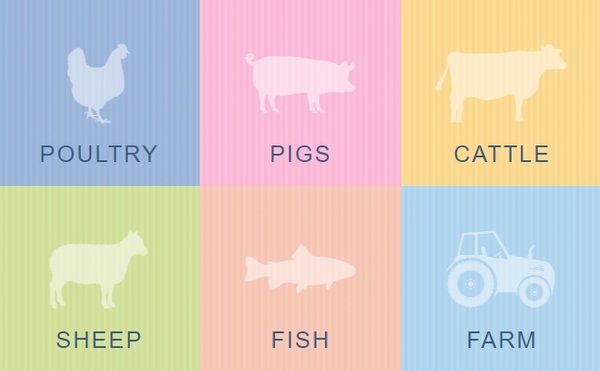The sector-specific targets were developed over the past year by a ‘Targets Task Force’, facilitated by the Responsible Use of Medicines in Agriculture (RUMA) Alliance.
The Targets Task Force comprises a leading veterinary surgeon and farmer from each of the beef, dairy, egg, fish, gamebird, pig, poultry meat and sheep sectors, who have been consulting with key organisations in their respective industries. The group also includes observers from regulators Food Standards Agency and Veterinary Medicines Directorate (VMD).
While the targets each sector has set vary according to the availability of data and scope in their sector, the targets as a whole have been described as ‘positive and proactive’ by the VMD.
Furthermore, the regulator has welcomed the voluntary sharing of usage data by the different farm livestock sectors, saying it has been ‘sincerely impressed by the way different sectors have risen, or are rising to the challenge’.
The headline targets for the eight sectors include a reduction in use of antibiotics in pigs by over 60% between 2015 and 2020, with minimal use of highest priority Critically Important Antibiotics (CIAs). Data released earlier in the day indicate a good start has been made, with usage in the pig sector falling by around 35% between 2015 and 2016.
The dairy cattle sector has committed to a 20% reduction by 2020, with a particular focus on halving use of the highest priority CIAs. The work to achieve this will be led by a newly-created Dairy Antimicrobial Stewardship Group (DASG) which includes all key organisations in the sector.
Some of the strategies to achieve these goals in dairy farming include reducing the use of antibiotic dry cow therapy and injectable products, and cutting back on group treatments such as antibiotic footbaths for lameness which remain largely unproven, instead using topical and targeted treatments.
The gamebird sector, having undergone a comprehensive awareness-raising initiative among game rearers in 2017 to cut back on reducing the need for medicines, aims to reduce use by a quarter this year, with a further 25% reduction between 2018 and 2020.
Three sectors – poultry meat, laying hen and fish – are either already low users of medicines or have made significant reductions over the past five years. These sectors will be focusing on maintaining use at the minimal level needed to ensure good health and welfare among their livestock, while tackling emerging challenges should they arise.
The poultry meat sector, previously described as a ‘pathfinder’ for the rest of the farming industry, has already reduced use by 71% between 2012, when its stewardship scheme was introduced, and 2016.
In doing this, the poultry meat sector has also ceased all preventative treatment and use of the highest priority CIAs. It will now maintain current levels in chickens and look for further reductions in turkeys. This sector will use clinical governance to ensure CIA antibiotics are only prescribed when absolutely needed and with sign off from veterinary specialists and management.
The laying hen and fish sectors have similarly committed to continuing low use, with the laying hen sector eliminating all use of highest priority CIAs in the past two years. The development of a vaccine in the salmon sector several years ago successfully controlled one of its most challenging bacterial diseases, so the focus has turned to the health of the ‘cleaner fish’ used to provide natural control of sea lice.
The trout farming sector, with its greater number of small producers, is concentrating on reducing the need for antibiotics and improving data capture.
The Targets Task Force was first proposed by RUMA after the O’Neill Review on Antimicrobial Resistance was published in May 2016. The group was progressed after Government confirmed an objective to have sector-specific targets in place by the end of 2017.
 Immediately following the news that sales of antibiotics to treat and prevent disease in UK farm livestock have achieved a record low following a 27% reduction over the past two years, targets for further reducing, refining or replacing antibiotic use across the key livestock sectors have been announced at a London conference on October 27th.
Immediately following the news that sales of antibiotics to treat and prevent disease in UK farm livestock have achieved a record low following a 27% reduction over the past two years, targets for further reducing, refining or replacing antibiotic use across the key livestock sectors have been announced at a London conference on October 27th.







.jpg&w=3840&q=75)